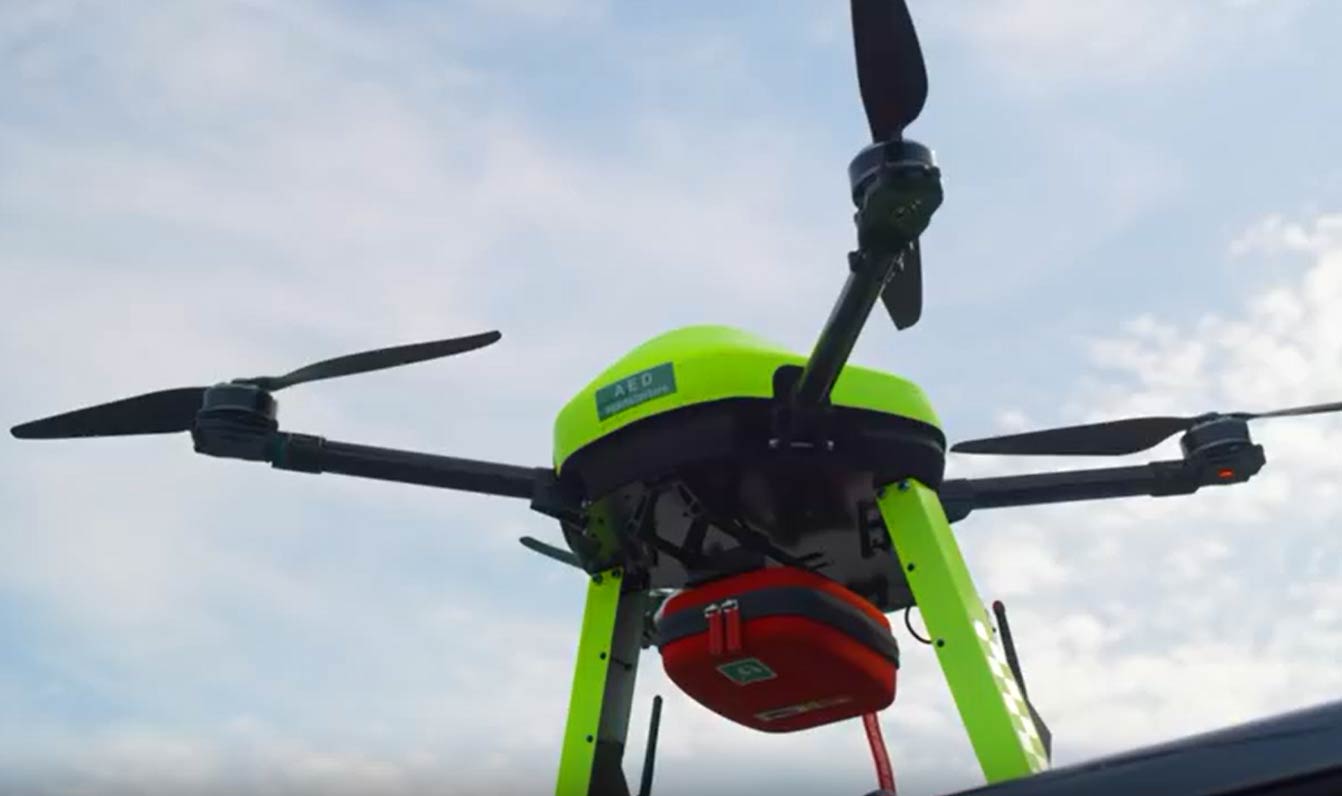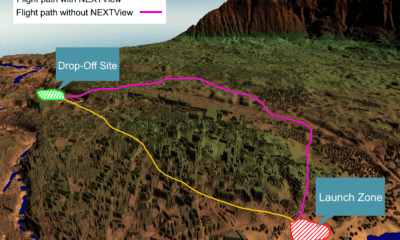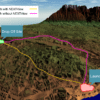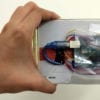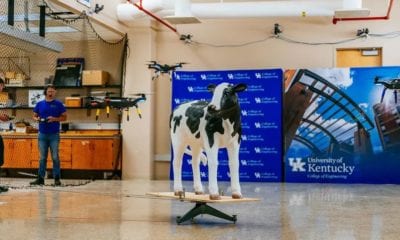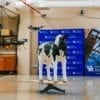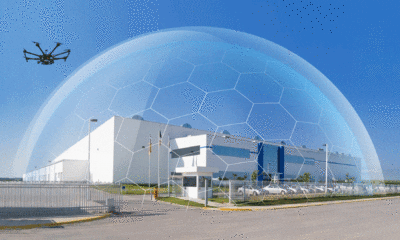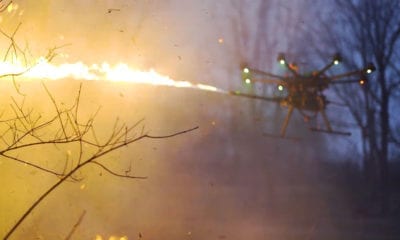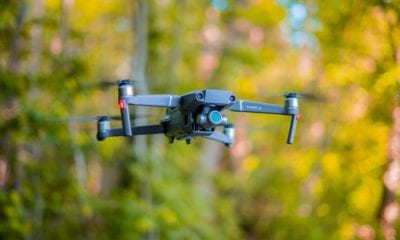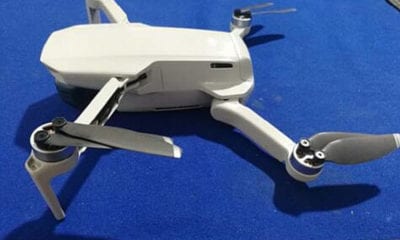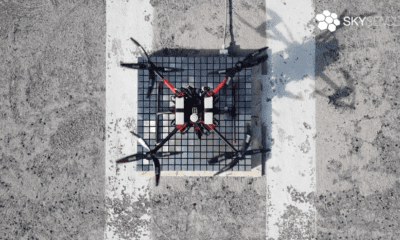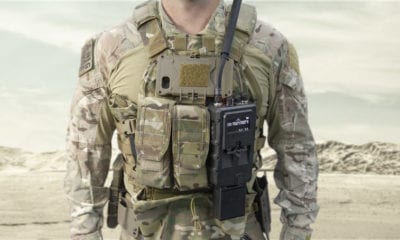Ericsson’s 5G Defibrillator Drone Could Save Lives in Europe
A 5G drone being developed by telecom giant Ericsson in collaboration with Swedish phone company Telia and the Karolinska Institute of Medicine could save lives.
The purpose of the new joint project is to create a 5G drone defibrillator intended for emergency operations, to improve medical outcomes in the case of out-of-hospital cardiac arrests.
In Sweden alone each year, only 600 out of 5500 cardiac arrest victims that occur away from medical assistance, survive.
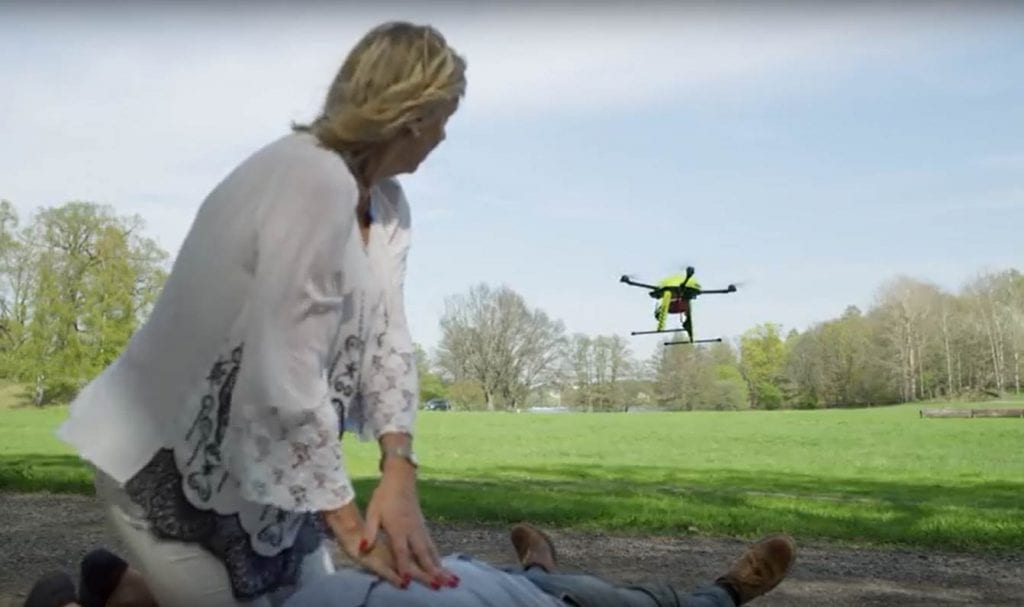
A defibrillator drone arrive to save a cardiac arrest victim | Youtbe/Telia
Future changes in the public health system have been the subject of discussion, following the signing of the five Prime Ministers of Sweden, Norway, Denmark, Finland and Iceland to prioritise development of 5G in health care.
Telia, in a Youtube video, describe the ways in which drones operating on a 5G network would be able to operate to reach patients in remote areas.
“Advancements in UAV technology and the use of a 4G and future 5G network makes it possible for us to create digital aerial infrastructure which enables UAVs to reach remote locations.”
This infrastructure allows an entire network of UAVs and emergency services to be connected controlled and corrected dynamically by both the control centre and the authorities.”
The UAV situational awareness will let it adapt it’s travel route depending on weather reports changes in routes of manned aircraft, obstacles or no fly zones,” Telia continues.
The operating speed of the drones will be 4 times higher than an ambulance, increasing the victim’s chances of survival and leading to a lower incidence of damage on the patient’s cardiovascular system.
According to some studies, to date, people suffering from cardiac problems rescued within 3 minutes have 70% more chance to save themselves.
However laws still require modification in order that such technology can reach its full potential.
“As it today rules and regulations haven’t caught up with the advancements,” Telia says. “We want to see a solution where technology can be used to its full extent and as a service to society.”

